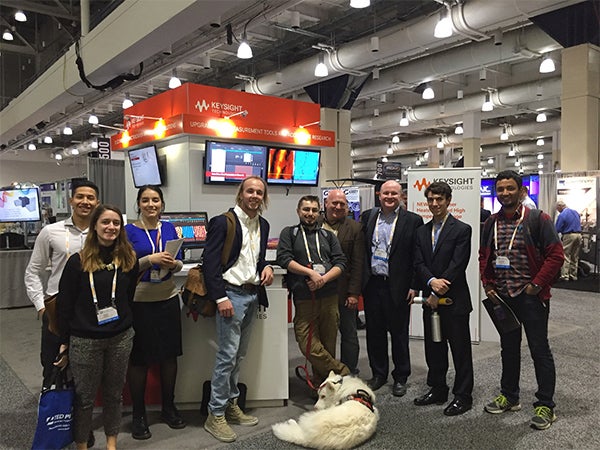Smart gun-safety technology. Cryptocurrency with a distributed network of 4 PB. LED lighting that kills germs safely and continuously. At the core of each of these wildly successful startups sits a risk-taker with an awesome idea and a passion for solving real-world challenges.
Another common denominator? The Severino Center for Technological Entrepreneurship at Rensselaer. The Severino Center’s unique, collaborative approach to student-based startups gives undergrads, graduate students, and faculty the resources to determine if their idea has what it takes to turn it into a business.
From idea to validation to execution, the Severino Center, which sits in the Lally School of Management, takes budding entrepreneurs, builders, designers, and developers through the early stage of the entrepreneurial funnel. The goal is to drive entrepreneurship across campus with programs, competitions, networking, and funding opportunities.
“We’re doing things that prime the pump of Rensselaer’s entrepreneurial ecosystem by connecting people who want to build things, change the world through entrepreneurship, or help others achieve their goals,” says Jason Kuruzovich, the center’s director.
This means tackling problems that are broader than the ones they encounter as 18-year-old college students. Rather than exploring ways to get food delivered in Troy at 2 in the morning, says Kuruzovich, “we have them thinking about problems that are really going to change the world.”
For many students, their Rensselaer experience is the first time they’re exposed to global problems. For that reason alone, the Severino Center offers a safe platform for innovators and fledgling entrepreneurs to explore their untested ideas, and risk —gulp!—failure.
In fact, says Kuruzovich, expect to fail. Any entrepreneur has hundreds of failures before he or she hits on the right solution. Failure is feedback.
“It may seem scary in that they don’t want to fail at something. But entrepreneurship is this unique experience that is really beneficial during college. It allows you to work in a context where you don’t have the answers,” Kuruzovich says.
The core of the Severino Center are its communities and programs. The communities (Foundry-RPI and Startup Tech Valley) are a great place to get started and are open to all. The programs are extracurricular and open to Rensselaer undergrads and graduate students, regardless of major.
At the basic level of the program, the students identify an industry need. Students explore a problem that has not been solved yet and give a two-minute pitch as part of a $500 competition that is judged by a panel of alumni and alumnae judges.
Rensselaer’s signature Change the World Challenge offers a series of informational sessions culminates with a presentation in which awards of $1,000 are made to each of the top teams for technologies, devices, and processes that have demonstrated the potential to succeed.
The final part of the program series is an intense, five-week program where teams of three interview potential customers to determine product market fit and prepare a final pitch. Qualified teams are eligible for $3,000 from the National Science Foundation for conference travel and customer visits.
From there, the “ideas” can move to the Emerging Ventures Ecosystem (EVE) accelerator for further refinement and patenting, and then, if the company has a grant or investors, to office or lab space in the Rensselaer Technology Park campus in nearby East Greenbush.
Because the ideas generally cross disciplines, the teams often collaborate with the Rensselaer Center for Open Source (RCOS), Center for Automation Technologies & Systems (CATS), Tech Valley Digital Gaming Hub, Center for Future Energy Systems (CFES), and other campus resources.
To further cultivate the rich history of entrepreneurship at Rensselaer, the Severino Center started Startup Tech Valley in 2014. The meetups, which are held throughout the year at Revolution Hall at Browns Brewing in Troy, are a forum for the region’s early-stage companies to test their pitches to more than 200 entrepreneurs, mentors, potential customers, service providers, and other critical connections.
“It’s a small part of our efforts, but we’re trying to ensure these teams have access to the region’s broader ecosystem,” Kuruzovich says.


